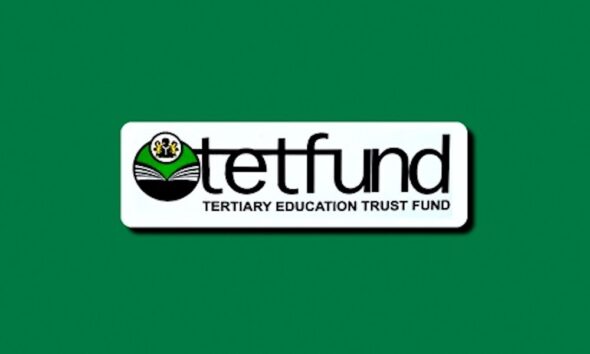The Tertiary Education Trust Fund (TETFund) has revealed it’s undertaking some measures through partnerships with British institutions, to boost transnational education in Nigeria.
Executive Secretary TETFund, Sonny Echono who made this disclosure while hosting a delegation of the British Council, led by Director of Global Network, Charlie Walker, also revealed that the Fund would reallocate the savings from its suspended overseas scholarship programme to fund in-house training and capacity-building initiatives for Nigerian institutions aiming to enhance their educational capabilities.
According to him, TETFund’s partnership with British institutions would help facilitate knowledge sharing, collaborative research, and faculty development.
Echono further added that the partnership would expose Nigerian academics to global best practices to enhance the overall quality of education in the country, and enable local institutions to develop their capacity to offer high-quality programmes to ultimately reduce the country’s reliance on foreign education.
He said: “We are also glad for your support to the ongoing efforts in trying to see how we can move a little bit quicker in the area of transnational education.
“We have held a series of meetings as you acknowledge with Sir Steve Smith on this, with our NUC and all the major stakeholders. And there is an agreed template that we are working on.
“And that TETFund will be in a position to support the partner institutions here to ensure that they meet the requirements and also provide all the resources that are required for them to host these programmes, or to go into the collaboration with their British partners as the first step in implementing the guidelines that we have adopted.
“We are aware of the multiple dimensions of transnational education. And the various ways that this will be implemented.
“But the assurance we will give, and this is supported by the Ministry, because the Honourable Minister has been following up on some progress in this direction, is that TETFund will be there and will provide the right funding to support those institutions.
“And we believe it’s coming at the right time because, by way of policy, we have suspended sending our scholars abroad. Those who are there now will complete their programmes, but for the next few years, we intend to do in-house training.
“We recognize the fact that not all the institutions here can meet the actual needs given the global nature, universality of knowledge and the current trends that are out there, some of which will still be novel to us back here.
“So we want to be able to leverage on our partners who have a wider reach, more experience and exposure, particularly in areas of new technologies and new ways of doing things, to be able to bring it here so we are more or less leapfrogging”.
British Council’s Director of Global Network, Charlie Walker underscored the importance of transactional education in bridging the knowledge gap and fostering global understanding between Nigeria and the United Kingdom as well as promoting cultural exchange, research collaboration, and skills development among Nigerian students and academics.
The Director pointed out that the relationship between the UK and Nigeria had remained very important and age-long with tremendous bilateral achievements and successes, explaining that the most important one was investment in education.
According.to him, the works of the British Council had connected students, teachers and academics in Nigeria and the UK, adding that it had also opened access to international education and knowledge to expertise, and other study opportunities for young Nigerians.
“We, in the British Council, see the importance of transnational education, which is very central to what we want to achieve in our work in higher education.
“Again because we believe the collaboration between British institutions, British universities, and Nigerian universities can be hugely beneficial in the areas of research and in the areas of teaching and study for young people and the skills development that young Nigerians need.
“We are delighted that the guidelines on Transnational education have now moved to the implementation stage that you are considering an exciting pilot programme across the six geopolitical regions of Nigeria.
“We are excited about the prospect of British partners coming into that pilot programme, and hope that we in the British Council, we assure you that we are here to support that development and to work with the TETFund and other partners in government on both sides to make sure that we can play a successful role in the next stages of this programme.”















